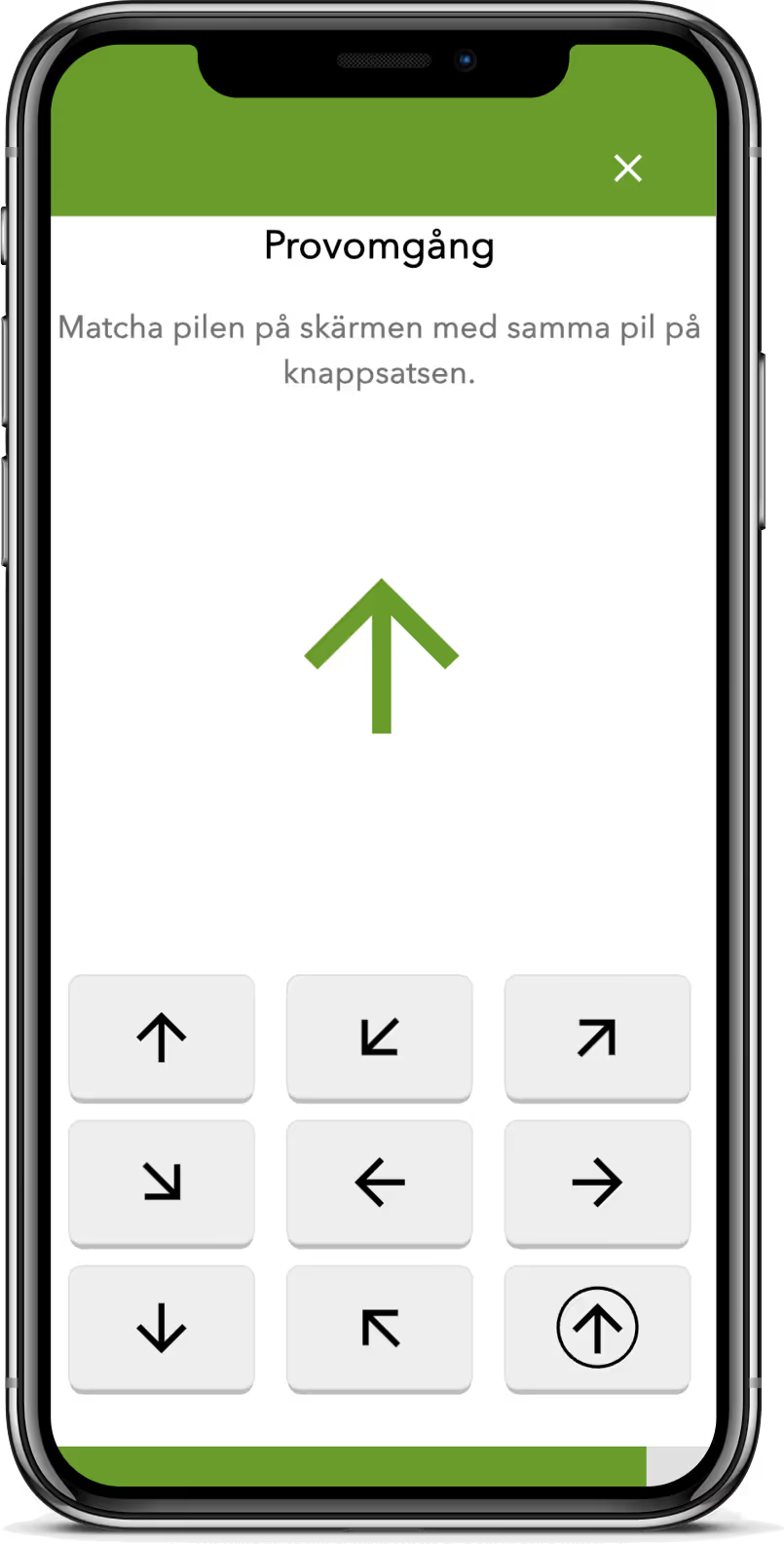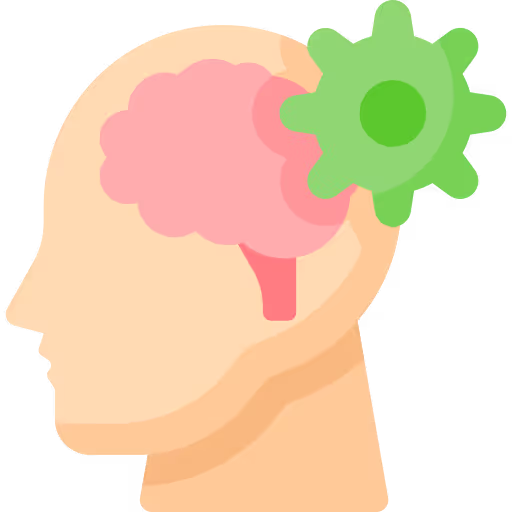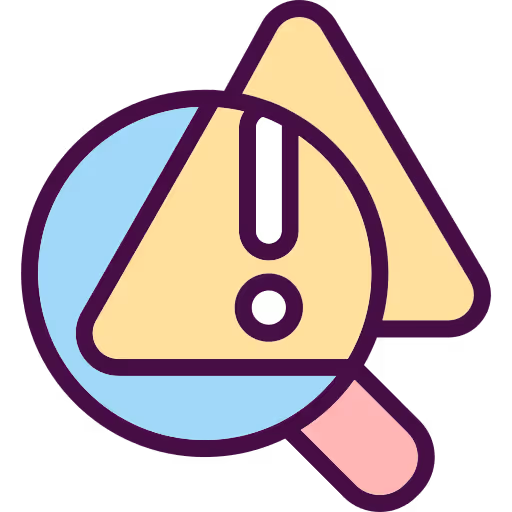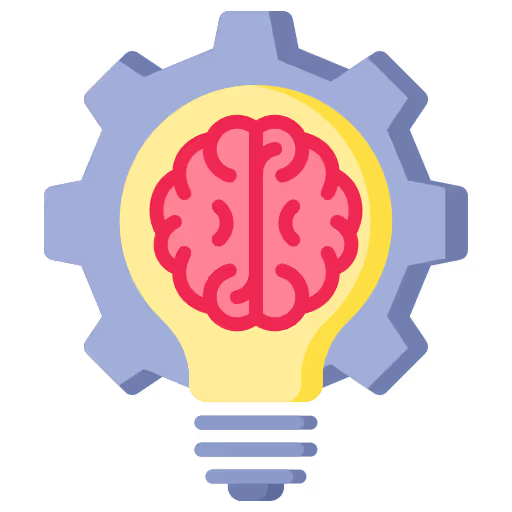 Booking
Booking



































The frontal lobe is one of the most complex areas of the brain. It sits at the front of the brain, behind the forehead, and acts as a 'boss office' for many of our most advanced and human functions.
It controls planning, decision-making, impulse control, our conscious movements and our working memory, among other things.
Example: The frontal lobe helps you to create a plan, follow it, and adjust it if necessary.



Located behind the frontal lobe and above the occipital lobe, the temporal lobe is the brain's 'sensory control center'.
It plays a crucial role in how we perceive and interpret the world around us through the senses - particularly touch, spatial awareness and attention.
Example: If someone taps you on the shoulder, the frontal lobe tells you where it happened and how it felt.



The temporal lobe is an important area on the sides of the brain, roughly behind the ears.
It plays a central role in hearing, language, memory and emotions. The temporal lobe acts as a kind of interpreter and memory bank, where sensory impressions are processed and linked to meaning and emotion.
Example: You hear a voice and remember who it belongs to - thanks to the temporal lobe and hippocampus.



The occipital lobe is the part of the brain located at the back, above the neck bone.
It is the visual center of the brain, specialized in receiving, processing and interpreting information from the visual sense.
Example: Imagine that the eyes are cameras. Then the occipital lobe is the processor that makes the image intelligible.



The cerebellum is located at the back of the brain, under the occipital lobe and behind the brainstem.
Although it accounts for only about 10% of the brain's volume, it contains over 50% of all neurons. It is thus extremely tightly connected and plays a crucial role in the body's fine motor skills, balance and coordination - but also in certain cognitive and emotional functions.
Examples: playing an instrument, catching a ball or writing with a pen



The brainstem is the oldest and most basic part of the brain - a kind of 'bridge of life' between the brain and the spinal cord.
Despite its small size, it controls vital functions, such as breathing, heart rate, alertness and reflexes. It is also a highway for nerve signals between brain and body.


Brain Check is a so-called multimodal lifestyle intervention program to improve your brain health and reduce your risk of future dementia.
This means that by following the program and your individual plan in Brain Check, you reduce your risk of future dementia and improve your brain health. This is because Brain Check is a program that is designed and developed based on current knowledge and the latest research on brain function needs.
Your team, assigned to you when you start, will combine the latest research and their knowledge of the brain with information about you and your risks.
This will then result in an individualized plan to reduce your future risk of dementia.
Anyone over the age of 18 who wants to improve their brain health and reduce their risk of future dementia can take part in Brain Check.
Research clearly shows that it is never too late to start tackling your brain health and start addressing any risk factors, but rather the opposite - the earlier you start, the more impact you will have.
Whatever your underlying conditions and medications, your team and your doctor will follow you and enable you to participate in the program. You will receive a plan that is tailored to you and your needs.
Hjärnkollen with minnesmottagningen.se costs from SEK 229 per month (no commitment period).
What is included in the price?
Cognitive testing
Medical assessment
Personal plan
- Stress management
- Dietary advice
- Exercise program
- Sleep advice
- Cognitive optimization
Lectures
and seminars
Follow-ups (which measure your development in the program)
Supplement: Blood tests where we also follow your development through biomarkers - SEK 289 / month.
This can also be paid separately in the program for SEK 229 / month if you would like to add it during the program.
Scientific evidence that lifestyle intervention programs could reduce the risk of cognitive decline and later dementia, while improving brain health, was first shown in the FINGER study published in 2015.
Since then, research has been conducted in many countries to develop the idea of lifestyle programs with the goal of strengthening the brain, keeping it functioning well and thus reducing the risk of disease.
Links to some of these studies:
FINGER study: https://pubmed.ncbi.nl
m .nih.gov/25771249/
FINGER-NL study: https://alzres.biomedce
ntral .com/articles/10.11
86/s13195-024-01495-8
Online multidomain intervention: https://pubmed.ncbi.nl
m .nih.gov/39875685/
LETHE project: https://www.lethe-
project.eu/
Maintain your brain: https://pubmed.ncbi.nlm.nih.gov/36806506/
SUPERBRAIN-MEET: https://pmc.ncbi.nlm.nih.gov/articles/PMC10864697/
Minnesmottagningen.se collaborates with over 250 clinics across Sweden that offer testing.
Scroll up above to see a map of clinics.
Is your city not on the map of clinics?
Contact us via chat or atminnesmottagningen and we will help you.
